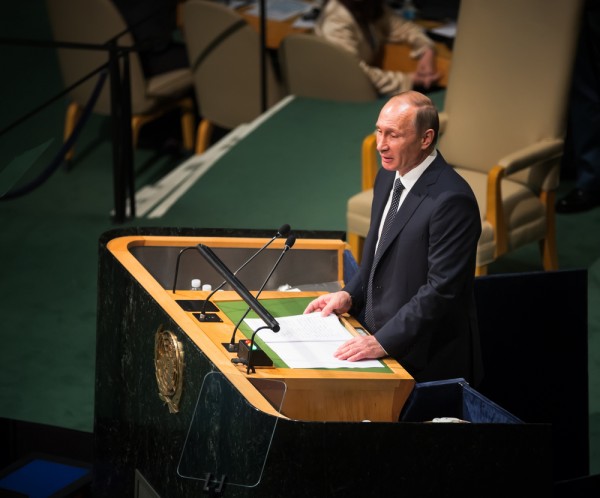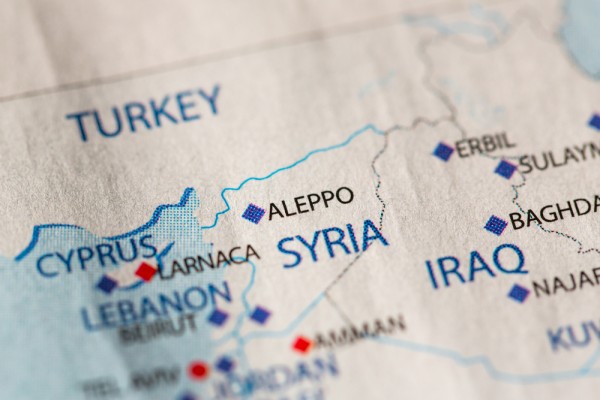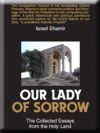Once in a blue moon, this writer’s view coincides with that of the New York Times leader . It has happened now. The Saudi predilection for gore is not easy to stomach. The House of al Saud chose to celebrate the New Year, Christmas and Nativity of the Prophet Muhammad by shooting (or chopping heads, or whatever is their wont now) some forty-seven persons, conveniently described as “terrorists”. One of the condemned to death is the Palestinian poet Ashraf Fayadh who terrorised the Saudis by curating their exhibition at Biennale of Venice, by writing free-thinking poetry, letting his hair grow long and smoking tobacco. Another of the executed men was the Shiite Ayatollah (Bishop) Sheikh Nimr al-Nimr, “a vocal critic of the regime and champion of the rights of the Shiite minority in the Eastern Province of Saudi Arabia, but not an advocate of violent action”, in words on the New York Times . He languished in jail since 2012, was beaten and tortured and eventually killed.
His horrified coreligionists in Iran torched an annex of the Saudi embassy, while the Saudis broke diplomatic relations with Iran. So did their satellite Bahrain: this tiny statelet with its Shia populace and Sunni rulers, a home for the US Fifth Fleet, had been invaded and occupied by the Saudi troops in 2011. (UAE, Kuwait and Sudan downgraded their missions). It appears that the Saudis “counted on the fierce reaction in Iran and elsewhere as a distraction from economic problems at home and to silence dissenters”, says the NYT. Amazingly, they wanted to push their country to the brink of war, as if two ongoing wars in Syria and Yemen are not enough for them.
Being painfully aware that they can’t fight their real enemy Iran alone, they called for the Arab league and for their phony “anti-terrorist Islamic NATO”, a “military bloc” they had declared. Leaders of the “Islamic bloc” countries learned from newspapers that they were supposed to fight Daesh terrorists under the Saudi banner. The mass executions and the Iranian response perhaps may re-formulate this coalition of the unwilling into the anti-Shia front the Saudis had originally wanted. Daesh is their friend and offspring; the latest beheading shows there is no big difference between the twain. Meanwhile Iran is a sort of democracy, which they loathe.
However, I want to share with you insights from a Russian freelance scholar with a military background who runs the limited distribution Triple-R (Russian Ranger Reports) on Yemen and Saudia. He proposes a different reading of the map.
In his view, this was no coldly planned action, but rather spontaneous spite. Prince Mohammed ibn Salman, the king’s son, hates his main competitor for the throne, Interior Minister Prince Mohammed ibn Naef (whose father the powerful Prince Naef recently died, undermining his son’s chances for the throne) and he arranged for execution of Sheikh Nimr in order to entangle Prince ibn Naef in the conflict with local Shias. He took from him his National Guard, leaving him with next to nothing in case of trouble. Perhaps. But wars happen for even smaller reasons, and the recent developments in Saudi Arabia call for a shrink, not for a military or political analyst. We forgot in our age of reason that absolute monarchies act for very human reasons, and what could be more human than madness?
Something is wrong in the thick heads of Saudi sheiks. Instead of serenely enjoying their good fortune, they let the delusion of omnipotence lure them to their perdition. Freud connected this feeling with anal erotism, and it should not come as a surprise to any careful reader of T.E. Lawrence. Indeed any woman could cure a man of such delusion, but in strictly separated sexual life of the Saudis such encounters occur too late in life.
God knows they had a lot of luck. Once the feudal lords of a remote strip of sand called Nejd in the heart of the Arabian desert, they pried away Hijaz with its major prize of Mecca and Medina from the Hashemite descendants of the Prophet. They made an alliance with the US financiers and the military; they turned their oil into heaps of dollars, palaces, jets.
The Muslims of this world received no benefits from the Saudi money heap. Rather a curse than a blessing, their petrodollars destroyed everything they touched. The Saudis had sent their prince Osama bin Laden to Afghanistan, and ruined the country. Their money (and American weapons) devastated Chechnya, Bosnia, Kosovo, Somali, Libya, Syria, Yemen. Now they undermine Niger, Chad and Nigeria.
Have no doubt: the big bad West, NATO and Pentagon together would never be able to ruin the Muslim world without the Saudi connivance.
They appointed themselves defenders of Sunni Islam, but they helped the US to destroy the mightiest Sunni state of all, Iraq of Saddam Hussein and rejoiced at Saddam’s fall.
They caused the collapse of the democratically elected Muslim government of President Morsi of Egypt and installed the military dictator in his stead (he turned out less obedient than they expected). I do not exaggerate: Morsi’s fall was a result of a conspiracy arranged and paid for by the Saudis . They used the methods previously applied against the last Soviet government of Russia, namely they created artificial shortages of food and petrol, they sent hired thugs to cause insecurity. Once Morsi was removed, as by the wave of a magic wand the shortages and thugs were gone. The Saudi-sponsored Salafists supported the military coup and gained at the Muslim Brotherhood’s banishment.
They did not help the most oppressed Sunni Muslims, the Palestinians of Gaza, when they suffered the brunt of an Israeli blockade and shelling. Oh yes, they promised (“committed”) billions for Gaza reconstruction, but none of these promised billions were delivered. The Saudis are very generous with their promises, but stingy with actual payments. (I learned it first hand: a Saudi newspaper reprinted my essays from Palestine during the Intifada; they promised to pay, but they never did.) They spend their money on the import of luxury and weapons, and on the export of their extremist ideology (in religious guise) to other Muslim countries and communities.
The Saudis acted nasty for many years. An outsider, I was astonished to learn that they are hated even more than Israelis by the average Arab, be it Palestinian, Egyptian or Lebanese. But they grew in nastiness with every year. They (and their terrible dwarf twin Qatar) conspired with NATO against Libya, and ruined this country. Afterwards, they shipped Qaddafi’s vast arsenal of weaponry to Syria via good services of their friends in Turkey. They were the engine behind the war in Syria and they prevailed upon Erdogan to enter this war. However, until recently they preferred to act on the sly.
They have got an Israeli complex, a complex of a pampered child who is allowed and encouraged by his adoring parent (the US) to tear off the wings and legs of living creatures. Nothing would force the US to condemn the Saudis – or Israel. Existence of the KSA (Kingdom of Saudi Arabia) is the sterling proof that the Jewish Lobby is not the only reason for the US Mideast policy and is not the single source of general nastiness in the region.
The Israeli complex is a feeling that one can do anything and everything. Such kids end in jail, and this is mentality of the KSA rulers. Their mad plans go astray because the plans are too big while their abilities are too limited. Being mentally unable to recognise their limitations, they blame their failures on Iran. Iran has its own problems, but Iran is not infatuated with the Saudis as the Saudis are obsessed with Iran.
The diplomats stationed in Saudia told me of Saudi lack of interest for the Palestinian cause, or for Daesh. For them, there is only one problem in the world: Iran. This unites them with Israel, where Iran is the main obsession of Prime Minister Netanyahu. Israel and Saudia are the great Semitic couple, a marriage made in hell. Of the two, Israel is relatively sober, while the Saudis are temperamental, passionate, given to fantasies, unable to plan.
I noticed their abnormal (in medical sense) attitude when the then head of Saudi intelligence Prince Bandar came to Moscow and tried to bribe President Putin. He offered fifteen billion dollars for the delivery of Syria. Putin politely declined, though this incident caused many a Russian official to twitch his eyebrows: it painfully reminded them of Yeltsin’s days when such offers (with a much cheaper price tag) were gratefully accepted. (In other ex-Soviet countries their offers are snapped up sight unseen. Bulgarians sell their weapons to Daesh, while the Ukraine supplies professional military men for Saudia.) Prince Bandar remained brooding for a few days more in the Moscow Lotte Hotel , getting deadly drunk every night and causing a big strain on Russian security.
The Russians try their best to be friendly with the Saudis. If you think that after the long litany of their transgressions the Russians would plainly hate Saudis’ guts, you do not understand the game. They desire to keep the channels of communication open. It has to be a direct hostile action, like the downing of their jet, for the Russians to switch to outright hostility, and the Saudis never went that far.
The Russians are not a timid exception. Nobody wants to upset the Saudis. They got away with their citizens’ involvement in 9/11. They can commit any barbarity, and nobody would object. From this angle, they are perhaps second to Israel, or even second to none. In 1981, Israel fought tooth and claw against President Reagan’s decision to sell AWACS aircraft to the Saudis, and lost. (This was the only case of Israeli losing until the recent Iran nuclear agreement.) Actually the only senior Western statesperson who dared to give Saudis a piece of her mind was the Swedish Foreign Minister, the indomitable Margot Wallström; and she also read riot act to the Israelis, making them scream “Holocaust!”
The Saudis visibly became too big for their boots when they attacked Yemen in an act of unrestrained open aggression against a neighbour. And this war is not going well. While everybody paid attention to the mass beheadings, on New Year’s Day, at midnight sharp, when you perhaps toasted your friends, the Saudis (meaning Prince Mohammed ibn Salman) unleashed the biggest ever air strike on Sana and other cities. They bombed the international airport and air base Dailami, the Expo Apollo business centre, the native villages of Ali Saleh, ex-president of Yemen. Such a New Year’s present… And at the same time, the Saudi forces with their Moroccan troops were beaten at Haradh border crossing, and the Houthis entered Saudia and took positions on the Saudi side, in a few miles from the border.
In short, general nastiness and cruelty are not a sufficient substitute for fighting abilities. The Saudis are not great fighters. They can bomb luckless Yemenis, but they cannot deal with Iran. Iran has many more troops, more tanks, more experience, a bigger population. However, the Saudis have an enormous military budget, over US$56 billion as opposed to US$6 billion for the Iranian war chest. This probably means that Iran and the Saudis will not start the war of their own volition. None is strong enough to defeat its adversary.
Iran may hope that internal problems of the KSA will cause its disintegration with a little help from the outside. Saudis may hope to get Israeli support. In the US, there are strong pro-Saudi and pro-Israel forces who were trashed but not eliminated by Obama. So the chances for war are slim, but not nil.
The Russians do not intend to intervene. They are busy fighting successfully in Syria; they helped the government forces to retake Homs and Aleppo. The Russians offered their mediation facilities to settle the Saudi-Iranian conflict, but probably it will bear no fruit. Putin prefers a bad peace to a good war, and this is what he has suggested to the Saudis and Iranians.
It is a pity Saudis do not understand that their problem is not Iran. They have just run out of their luck and of their resources. They can’t fight two wars and sell their oil for peanuts (intending to undermine Iran and Russia) and cut down their welfare programs and incite the Shia rebellion by beheading that beloved preacher. If they weren’t obsessed with spreading their aggressive ideology, they could live wonderfully well, and hundreds of thousands men and women in Tripoli, Aleppo, Aden and Grozny would be still alive. But those whom the gods wish to destroy they first make mad.
Israel Shamir can be reached at adam@israelshamir.net
This article was first published at The Unz Review
















